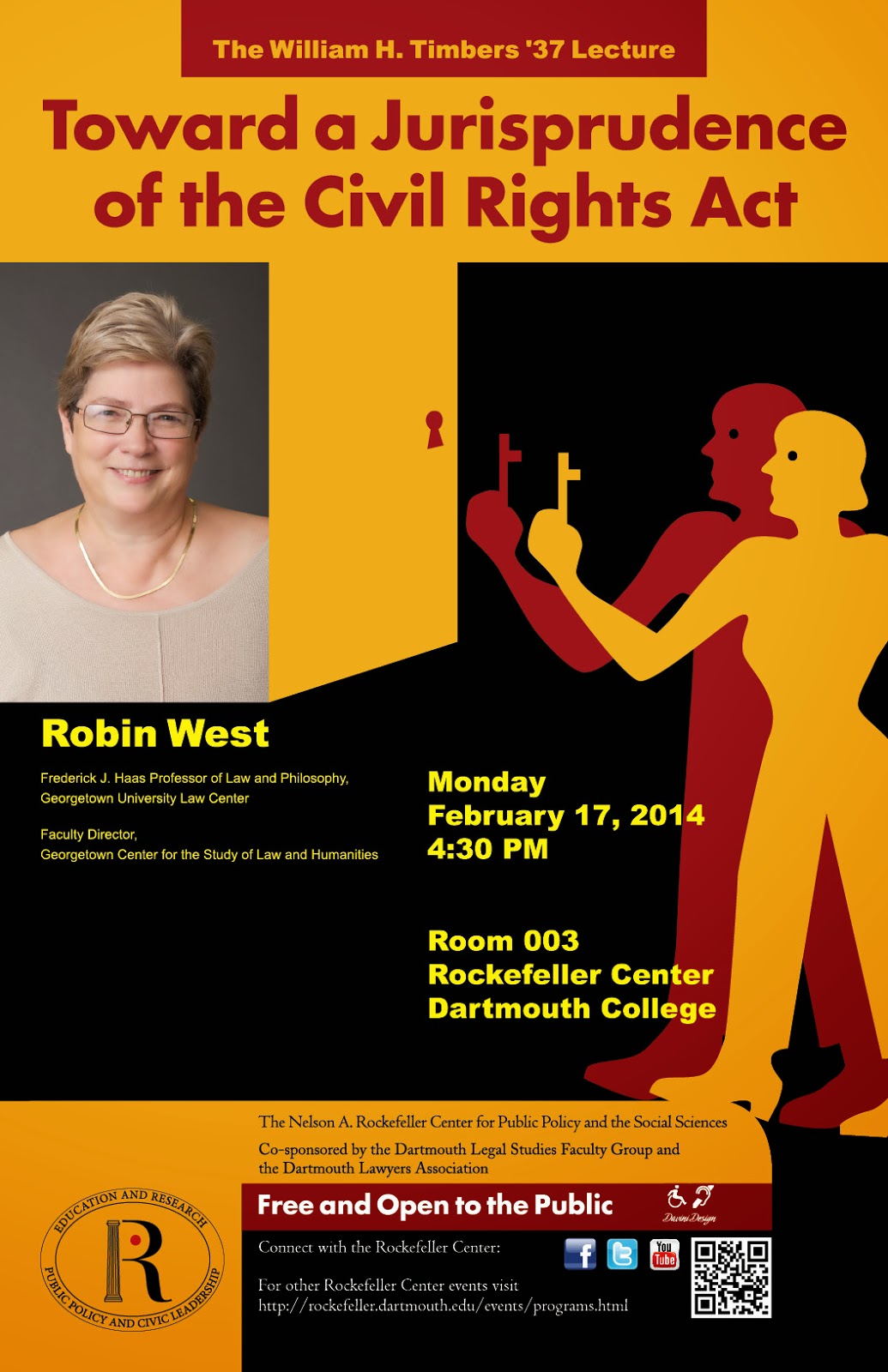- Public Policy
- Leadership
- Funding
- News & Events
- About the Center
Back to Top Nav
Back to Top Nav
Back to Top Nav
Back to Top Nav

"What is the nature of the rights, jurisdictionally, that the 1964 Civil Rights Act proscribes?" Robin West, the Frederick J. Haas Professor of Law and Philosophy at Georgetown University Law Center, asked at the start of her lecture. Throughout her presentation, West called for a re-conception of how people understand civil rights, and how to view civil rights as a way to argue not just for what the state is doing, but what the state should be doing.
West argued that, presently, we understand civil rights primarily on the basis of discrimination, which means we miss the underlying right. There must be a right to something beyond the right to not be the victim of discrimination. In regards to education, civil rights must affirm our right to an education and not stop at protecting us from discrimination.
West defined civil rights using the writings of 18th-century author and political activist Thomas Paine. Paine argued that civil rights are natural human rights owed to the people by the government based on the very nature of their membership in society.
This conception of civil rights allows laws not typically viewed as “anti-discrimination,” such as the Violence Against Women Act, to be perceived as civil rights. VAW protects women, allowing them to feel safe from private aggression, which West claims is a fundamental responsibility of the state.
West then differentiated constitutional rights and civil rights, saying that constitutionally, the rights protected are rights to “exit.” For example, people have the right to exit public school education and enter into homeschooling. On the flip side, civil rights are rights to “enter,” which allow everyone equal access to quality education.
For her conclusion, Professor West applied her conception of civil rights to the death of Trayvon Martin. She argued that while the failure to find George Zimmerman guilty of murder may or may not have been attributable to engrained racism amongst most people involved, another violation of Martin’s civil rights did occur. According to West, a law such as Stand Your Ground shrinks the sphere of expected civility, and allows an individual to hostilely pursue and kill the person while being protect by the argument of self-defense. The core civil right is that the state must keep individuals secure.
In the case of Trayvon Martin, the state failed to protect him from private violence, and this was a violation of his civil rights. She also emphasized the racially charged nature of this violation, referencing that young African-American boys are overwhelmingly the victims of cases where the right to safety is violated.
--Jennifer Davidson '15, Rockefeller Student Staff